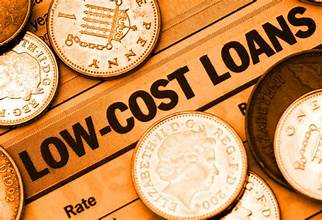Financial challenges can creep up when we least expect them. Whether it’s due to unexpected medical expenses, a job loss, or any other unforeseen circumstances, many of us may find ourselves struggling to meet our financial obligations, including repaying loans.
This is where loan forbearance can be a lifeline. In this article, we’ll explore what loan forbearance is and how it can help individuals facing financial difficulties.
Understanding Loan Forbearance
Delving into the mechanics of loan forbearance, clarifying how it allows borrowers to temporarily halt or reduce their loan payments during financial hardships.
What is Loan Forbearance?
Loan forbearance is a temporary agreement between a borrower and a lender that allows the borrower to temporarily pause or reduce their loan payments. It is often offered as a solution for borrowers who are facing financial hardship and are unable to make their regular loan payments. During the forbearance period, the borrower is not required to make full payments, but interest may continue to accrue.
Types of Loans Eligible for Forbearance
Loan forbearance is commonly associated with student loans, but it can also apply to other types of loans, such as mortgage loans, auto loans, and personal loans. The eligibility criteria for forbearance may vary depending on the type of loan and the lender.
Types of Loans Eligible for Forbearance
- Student loans
- Mortgage loans
- Auto loans
- Personal loans
These are the common types of loans that may be eligible for loan forbearance, each subject to specific lender policies and eligibility criteria.
How Loan Forbearance Works
Unpacking the step-by-step process of how loan forbearance functions, from requesting it to its impact on accrued interest and financial stability
Requesting Forbearance
To request loan forbearance, borrowers typically need to contact their lender and explain their financial situation. Lenders may require documentation to support the borrower’s claim of financial hardship. It’s essential to communicate with the lender promptly to explore forbearance options before falling behind on payments.
Duration of Forbearance
The duration of loan forbearance can vary. Some forbearance agreements may last for a few months, while others can extend for up to a year or more, depending on the circumstances and the lender’s policies. It’s crucial to discuss the terms and conditions of forbearance with the lender to understand the specific terms that apply to your situation.
Accrued Interest
During the forbearance period, interest may continue to accrue on the loan balance. This means that while you are not making full payments, the total amount you owe may increase. It’s essential to be aware of this and consider how it will impact your overall loan obligation.
How Loan Forbearance Can Help
Exploring the practical benefits of loan forbearance, including temporary relief, avoiding default, preserving credit scores, and potential interest relief for borrowers facing financial challenges
Temporary Relief
Loan forbearance provides temporary relief for borrowers facing financial challenges. It allows individuals to regroup and address their immediate financial needs without the pressure of making regular loan payments.
Avoiding Default
One of the primary benefits of loan forbearance is that it can help borrowers avoid defaulting on their loans. Defaulting can have severe consequences, including damage to credit scores and legal actions by the lender. Forbearance provides a safety net to prevent such scenarios.
Preserving Credit Score
Maintaining a good credit score is essential for future financial endeavors. By using forbearance as a tool to manage temporary financial difficulties, borrowers can avoid late payments that could negatively impact their credit history.
Interest Relief
In some cases, borrowers may qualify for forbearance with reduced or waived interest during the forbearance period. This can significantly reduce the overall cost of the loan for the borrower.
Is Loan Forbearance Right for You?
Evaluating whether loan forbearance aligns with your specific financial situation, exploring alternative options, and emphasizing the importance of consulting with your lender before making a decision.
Assessing Your Financial Situation
Before opting for loan forbearance, it’s crucial to assess your financial situation thoroughly. Consider your income, expenses, and the reasons for your financial hardship. Forbearance is a short-term solution and may not be suitable for long-term financial problems.
Exploring Alternatives
Loan forbearance is just one option for managing financial difficulties. It’s essential to explore other alternatives, such as loan consolidation, income-driven repayment plans, or seeking financial counseling. Each situation is unique, and the best solution may vary.
Consulting Your Lender
If you’re uncertain about whether loan forbearance is the right choice for you, don’t hesitate to consult with your lender. They can provide guidance on your specific loan and financial circumstances.
How to Consult Your Lender
When considering loan forbearance or exploring alternative financial solutions, it’s crucial to engage in open and effective communication with your lender. Here’s a step-by-step guide on how to consult your lender:
- Gather Information: Start by collecting all relevant loan documents, including your loan agreement, payment history, and contact information for your lender. Having this information readily available will help streamline the consultation process.
- Contact Your Lender: Reach out to your lender as soon as you anticipate difficulties in making your loan payments. Many lenders offer multiple contact methods, such as phone, email, or online portals. Choose the most convenient option for you.
- Explain Your Situation: Clearly and honestly explain your current financial situation. Be prepared to provide details about the specific challenges you’re facing, such as job loss, medical expenses, or other unexpected financial burdens.
- Ask Questions: Don’t hesitate to ask questions about the lender’s forbearance policies, alternative repayment options, and the potential impact of forbearance on your loan, including interest accrual. Understanding these details is essential in making an informed decision.
- Explore Alternatives: In addition to loan forbearance, inquire about other available alternatives, such as loan modification, income-driven repayment plans, or loan consolidation. Your lender can help you assess which option aligns best with your circumstances.
- Document Everything: Keep thorough records of all communication with your lender, including dates, names of representatives you spoke with, and the details of your discussions. This documentation can be valuable in case of any future disputes or misunderstandings.
- Review the Agreement: If you and your lender agree on a forbearance plan or any other arrangement, carefully review the terms and conditions provided by the lender. Ensure you fully understand the terms before moving forward.
- Follow Through: Once you’ve reached an agreement with your lender, make sure to adhere to the terms consistently. Timely and accurate documentation and payments are essential to maintaining a positive relationship with your lender.
- Seek Professional Help if Needed: If you find it challenging to communicate with your lender or believe you’re not receiving fair treatment, consider seeking assistance from a financial counselor or attorney who specializes in consumer finance.
Conclusion
In times of financial hardship, loan forbearance can be a valuable tool to provide temporary relief and prevent default on loans. However, it’s essential to understand how forbearance works, its impact on interest accrual, and whether it aligns with your financial goals. Before making any decisions, assess your financial situation, explore alternative options, and consult with your lender. Loan forbearance is a lifeline that can help you stay afloat during challenging times, but it should be used wisely and in conjunction with a broader financial strategy.

